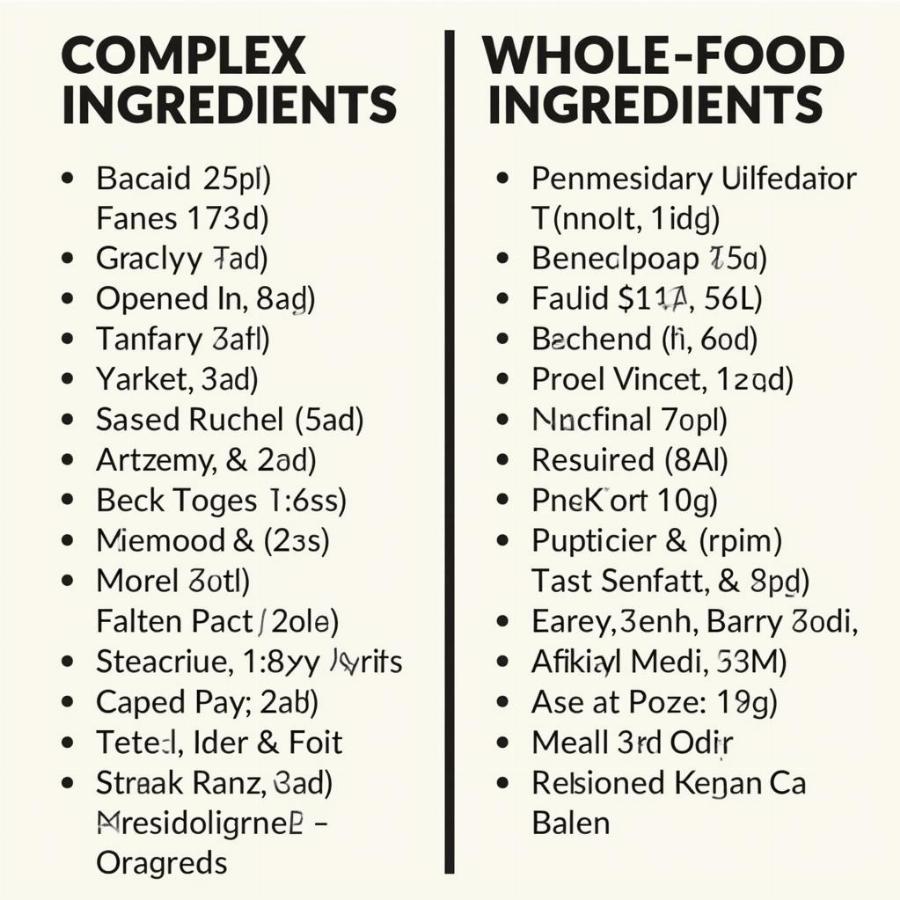Choosing the right treats for your puppy is a crucial part of their early development. Not only can treats help with training, but they also contribute to your puppy’s overall health and well-being. Finding the best dog treats for puppies involves understanding their nutritional needs, considering their age and size, and selecting treats that are both safe and appealing. Let’s delve into the world of puppy treats and discover the perfect options for your furry friend.
What are the best dog treats for puppies and how can you choose the right ones? This comprehensive guide will cover everything you need to know, from nutritional considerations to safety tips, helping you make informed decisions about your puppy’s treats. We’ll explore different types of treats, discuss important ingredients to look for, and highlight some potential hazards to avoid. By the end, you’ll be equipped with the knowledge to select the best dog treats for your growing pup.
Nutritional Needs of Puppies
Puppies require a specific balance of nutrients to support their rapid growth and development. Look for treats that are rich in protein, essential fatty acids, and vitamins. Avoid treats with excessive amounts of sugar, artificial colors, and fillers. High-quality puppy treats should complement their regular diet and contribute to their overall health.
What makes a treat truly nutritious for a puppy? A good puppy treat provides essential nutrients without excess calories. Look for treats made with real meat, poultry, or fish as the primary ingredient. These offer a concentrated source of protein, which is essential for muscle development. dog food with the most protein can offer some insights into protein-rich options. Also, consider treats with added vitamins and minerals to further support your puppy’s growth.
Types of Puppy Treats
There’s a wide variety of puppy treats available, each with its own benefits and drawbacks. Common types include soft treats, crunchy treats, freeze-dried treats, and dental chews. Soft treats are great for training and easy for puppies to chew, while crunchy treats can help clean their teeth. Freeze-dried treats often retain more nutrients, and dental chews promote good oral hygiene.
Which type of treat is best for my puppy? The best type of treat for your puppy will depend on their individual needs and preferences. For training, small, soft treats like those described in high value dog treats are ideal. For teething puppies, consider durable chew toys or dental chews. Always supervise your puppy when giving them any type of treat, especially chews.
Ingredients to Look For (and Avoid)
Reading ingredient labels is essential when choosing puppy treats. Prioritize treats made with whole, natural ingredients. Look for meat, poultry, or fish as the primary ingredient, followed by wholesome fruits and vegetables. Avoid treats containing artificial colors, flavors, and preservatives, as well as common allergens like corn, wheat, and soy.
What are some harmful ingredients to watch out for in puppy treats? Artificial sweeteners like xylitol can be toxic to dogs, even in small amounts. Also, avoid treats with added sugars, as they can contribute to weight gain and dental problems. Opt for treats with limited ingredients and a focus on natural sources of nutrients. A good alternative for a treat can even be mixing hot dogs and pasta in moderation.
 Comparing Ingredients of Various Puppy Treats
Comparing Ingredients of Various Puppy Treats
Safety Tips for Giving Puppy Treats
While treats can be a valuable training tool and a source of enjoyment for your puppy, it’s important to give them in moderation. Treats should make up no more than 10% of your puppy’s daily caloric intake. Always supervise your puppy when giving them treats, especially chews, to prevent choking hazards. Introduce new treats gradually to monitor for any allergic reactions.
How many treats is too many for a puppy? Overfeeding treats can lead to weight gain, digestive upset, and an unbalanced diet. Stick to the 10% rule and consider the size and caloric density of each treat. Remember, treats should supplement, not replace, a balanced puppy food. Reviews such as those found on heart to tail dog food reviews can guide you on choosing a suitable diet.
Conclusion
Choosing the best dog treats for puppies requires careful consideration of their nutritional needs, age, and size. By understanding the ingredients and following safety guidelines, you can provide your puppy with treats that are both enjoyable and beneficial for their overall health and development. Remember, treats should be given in moderation and as a complement to a balanced diet.
FAQs
- Can I give my puppy human food as treats? While some human foods are safe for dogs, many are not. Stick to specifically formulated dog treats to avoid any potential health risks.
- When can I start giving my puppy treats? You can start introducing treats as early as 8 weeks old, using them for training and socialization.
- Are dental chews good for puppies? Yes, dental chews can help clean your puppy’s teeth and promote good oral hygiene.
- What should I do if my puppy has an allergic reaction to a treat? Discontinue the treat immediately and consult your veterinarian.
- How can I store puppy treats? Store treats in a cool, dry place to maintain their freshness and prevent spoilage.
- Can I make my own puppy treats? Yes, there are many recipes available for homemade puppy treats. Ensure they are made with safe and healthy ingredients.
- Are grain-free treats better for puppies? Not necessarily. Some puppies may benefit from grain-free treats, while others may not. Consult your veterinarian for advice.
Further Reading
You might also be interested in learning more about pork dog food.
Beaut Dogs: Your Guide to the Canine World
Beaut Dogs is your one-stop resource for everything related to dog care, providing expert advice and valuable insights for dog owners. We offer a wealth of information on various dog breeds, nutrition, training, and much more. When you need expert advice, please contact us at Email: [email protected] for detailed and accurate answers.